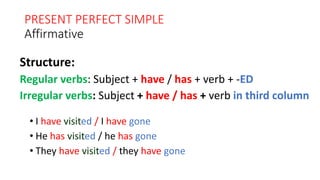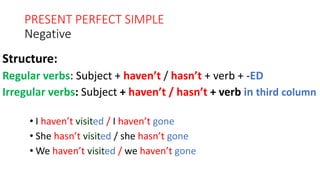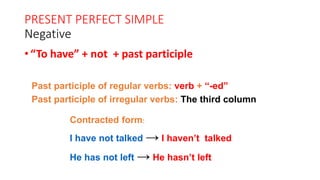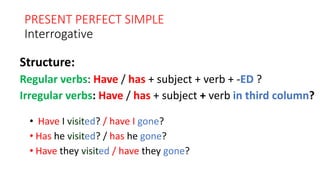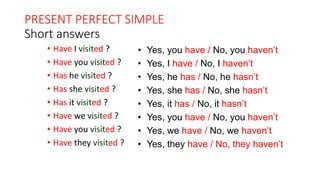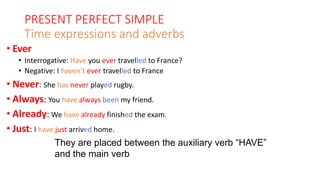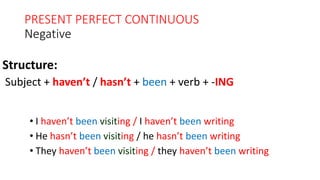The document describes the present perfect simple and present perfect continuous tenses in English. It provides the structures, examples, and uses of each tense. The present perfect simple is used for completed past actions that are still relevant or actions that started in the past and continue. The present perfect continuous emphasizes the duration of an action that began in the past and continues in the present or has just finished. The key difference is that the simple tense focuses on completion while the continuous tense focuses on ongoing or continuous duration.
